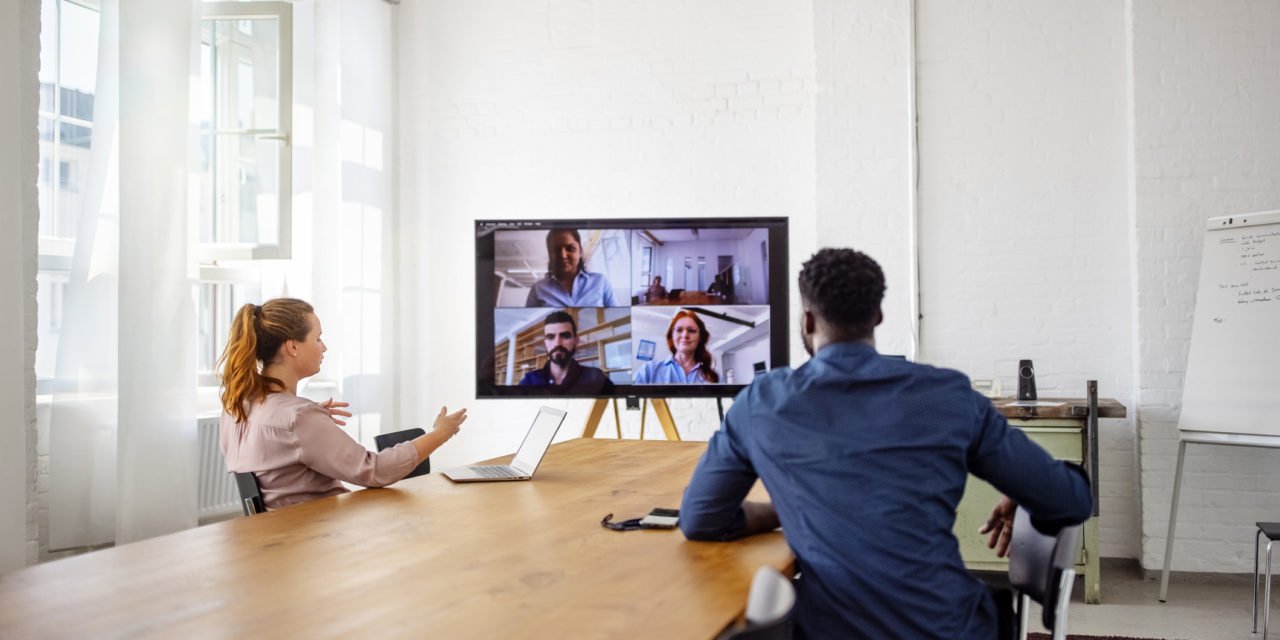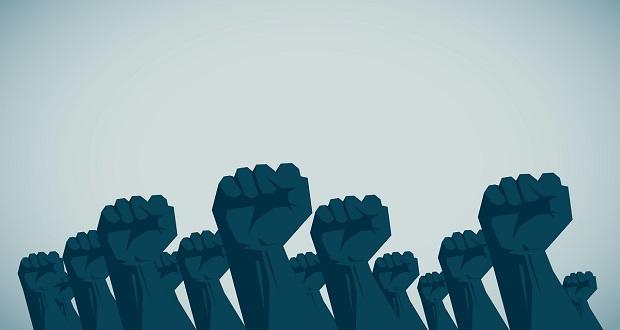The last 18 months gives new meaning to the term VUCA, the acronym that stands for volatility, uncertainty, complexity, and ambiguity. The term was first used in the army and then adopted by leadership theorists Warren Bennis and Burt Nanus in 1987 to describe business conditions.
Clearly the unrelenting COVID-19 Pandemic and all of the associated repercussions, the racial reckoning, the impact of climate change, and political polarization of epic proportions have left many of us confused, frustrated, and anxious about our future.
What are the implications for inclusion?
As Remote and Hybrid Work Becomes the Norm, it Can Create an “Us and Them” Culture
When many organizations had to pivot from in-person to virtual during the height of the pandemic in 2020, there was great skepticism that it could work. In fact, even though employees had been asking for more flexibility to tele-work and studies showed that workers were actually more productive when they worked from home, by and large it was discouraged, granted on a limited basis or not allowed at all.
As COVID continues to create a great deal of uncertainty, and organizations are reluctant to bring workers back into office settings, it seems that remote and/or some combination is here to stay. The risk of this new working arrangement is that we create “us and them” cultures where “in-person” workers are advantaged over those working remotely. If decision makers are more likely to be in the office, it can be easy to favor those who are in close physical proximity.
Remote/hybrid work is here to stay. The risk of this is that we create 'us and them' cultures where 'in-person' workers are advantaged over those working remotely. Here are some tips for creating inclusive hybrid environments... Click To TweetTherefore, leaders will need to be intentional in creating inclusive hybrid work environments, which will not be easy during these VUCA times. Here are some tips:
- Recognize that some employees may feel more included in a remote workspace. In a survey by the Slack think tank Future Forum, only 3% of Black workers indicated they wanted to return fully in-person, compared with 21% of white workers. Often when folks refer to the time beyond the pandemic as returning to ‘normal,’ marginalized groups are not eager to return to that “normal.” Many may prefer to work from home, feeling a sense of relief and a break from dealing with cultures that are less inclusive. For example, many Black employees have shared that while working remotely they have experienced fewer biases and microaggressions. As such, leaders will need to be intentional in creating inclusive remote and in-office environments.
- Be mindful of holding spontaneous “in-office” meetings that might exclude those working remotely.
- Be intentional in setting meeting times that consider the schedules of in-office and remote workers.
- Include non-work-related check-ins at the beginning of meetings to show care and concern for the well-being of the team, keeping in mind that employees have different personal circumstances. At The Winters Group, since we have been completely remote for over 20 years, we attempt to find creative ways to build relationships and stay connected such as virtual happy hours and book clubs.
- Reduce the number of meetings. “Zoom fatigue” is real. Consider whether a full-blown meeting is needed or if you can use other technology collaboration tools such as Slack.
- For in-office employees, ensure their physical safety by adhering to COVID-19 protocols. We are polarized about the need for vaccinations and masks. Pending legislation will make it mandatory for many workers to do both. There is a high risk of leaders needing to manage another “us and them” situation – the vaccinated and the unvaccinated – especially when the rules are still uncertain.
We Must Give Worker Well-Being the Highest Priority, Especially the Historically Marginalized
VUCA environments challenge our mental stability. More than ever, organizations need to recognize the different situations that workers might be facing. For example, when we went into lockdown mode last year, many parents and caregivers had to become homeschool teachers.
One equity-centered practice that I recently experienced on a call to New York Life’s customer service line: They had a recording while I was on hold that asked customers to please be patient because they may be speaking to someone who is working from home, and therefore may hear children or other family members in the background, and other distractions. I thought this was a great example of how an organization was normalizing this change and centering their employees first. We must extend grace to our teams during this time, and be flexible in thinking about ‘traditional’ work norms. Some well-being practices might include:
- Recognize that different identity groups are impacted differently by our VUCA world. It is critical to enhance cultural competence to be aware of and sensitive to the nuances. For example, we know that Black and Brown people are more likely to die from COVID. Your employees of color are more likely to have lost someone close to them. Consider the context and circumstances of each employee situation, adapting with empathy.
- Provide more flexible work schedules. At The Winters Group we do not have set hours. We invite our employees to complete their work during times that work for them, with the exception of those who need to be available during traditional working hours for client interaction.
- The Great Resignation trend that we are seeing may mean that you are short-staffed. This should not mean that you overwork employees. It may require shorter work days. Theorists are now debating the advisability of 4-day work weeks with some saying it actually improves productivity.
- Enhance your EAP options for counselors and therapists. For example, race based trauma is a very specific practice, which is being recognized by some organizations who are specifically retaining such specialists.
- Allow for more time off. Last year, The Winters Group closed for the month of December and during the summer we have every other Friday off.
Work will never be the same as it was before the Pandemic. We have great opportunities even in this VUCA world to develop new inclusive practices that enhance the work experience for all. It will not be easy, requiring intentionality, a willingness to radically change, and new leadership skills.
Work will never be the same as pre-Pandemic. We have opportunities to develop inclusive practices to enhance the work experience. It requires intentionality, a willingness to radically change, and new leadership skills. Click To Tweet



















